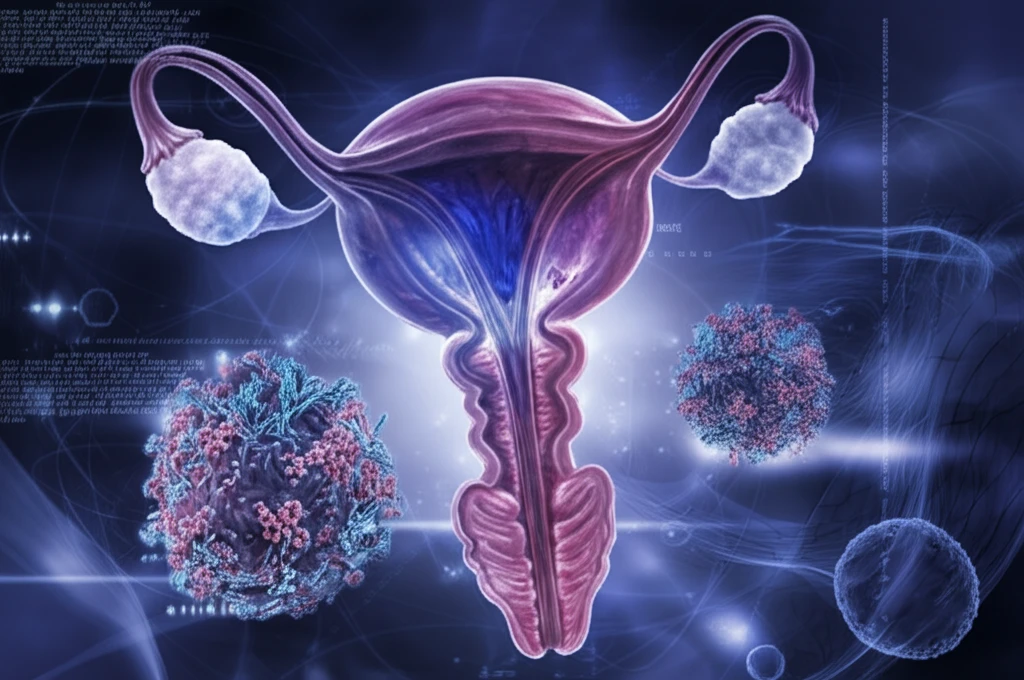
Decoding Bladder Cancer: How Hormones Hold the Key to Better Outcomes
"New Research Reveals the Impact of Sex Hormones on Bladder Cancer Treatment and Survival"
Bladder cancer, particularly muscle-invasive urothelial carcinoma (UCB), is a formidable challenge, often recurring even after radical cystectomy (RC). For decades, treatment options have remained limited, and recurrence rates stubbornly high. However, emerging research is shedding light on a new frontier: the critical role of sex hormones and their receptors in bladder cancer progression and treatment outcomes.
A groundbreaking study analyzes the expression of sex-steroid hormone receptors—androgen receptor (AR), estrogen receptor 1 (ESR1), and progesterone receptor (PGR)—in patients undergoing RC. By measuring mRNA levels of these receptors, scientists are uncovering how these hormones influence the course of the disease, offering potential new avenues for targeted therapies.
With a keen focus on how these hormonal signals affect recurrence-free survival (RFS) and disease-specific survival (DSS), this research opens doors to more personalized and effective treatment strategies. Understanding these hormonal dynamics is the first step toward transforming bladder cancer care and improving patient outcomes.
The Hormonal Connection: What the Research Reveals

The study assessed mRNA expression of AR, ESR1, and PGR in 87 patients with muscle-invasive UCB. The findings highlight a significant imbalance: AR mRNA expression was markedly lower compared to ESR1 and PGR expression. This disparity is critical, as it directly correlates with patient survival outcomes.
- AR mRNA expression is lower compared to ESR1 and PGR expression.
- High AR expression levels are associated with reduced RFS and DSS.
- Lymph node status is an independent predictor of reduced RFS and DSS.
- ESR1 and PGR expression status can further stratify patients with low AR expression into subgroups with significantly reduced RFS and DSS.
The Future of Bladder Cancer Treatment: A Personalized Approach
These findings mark a significant step forward in understanding the complex interplay between sex hormones and bladder cancer. By identifying specific hormonal profiles and their impact on survival, researchers are paving the way for personalized treatment strategies. Future research will likely focus on developing targeted therapies that modulate hormone receptor activity, offering new hope for patients with muscle-invasive UCB. The ability to stratify patients based on their AR, ESR1, and PGR expression levels will enable clinicians to tailor treatment plans, potentially leading to improved outcomes and a better quality of life for those affected by this challenging disease.
